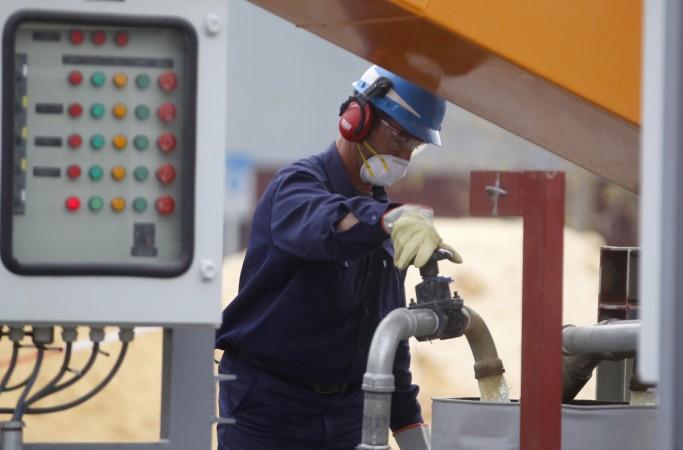
Crude oil prices edged up higher on Monday mainly driven by the speculations that the renewed geopolitical tensions in the Middle East may lead to supply disruption driving up the oil prices higher.
Brent crude oil prices traded just shy of $68 per barrel boosted by fresh tensions in Yemen and Iraq although the US dollar remained firm.
Saudi Arabia-led coalition resumed air strikes on Houthi rebels positions in the southern parts of Yemen, following the expiry of five-day ceasefire on Sunday.
Meanwhile, Islamic State fighters have seized the control of Ramadi in Iraq, the capital city of largest province in the country situated around 110km away from Baghdad.
"Traders are keeping a close eye on the situation in that region as it has an impact on global oil supply," Vandana Hari, editorial director at global commodity information provider Platts, told Business Line.
However, analysts believe that tensions will not have much effect on the crude oil supplies, as the US oil production may quickly rebound on higher prices.
"Speculative financial investors will doubtless view this as a good opportunity to make further purchases even though it is likely to have virtually no impact on oil supply," said Commerzbank Corporates & Markets in a note.
Last week, a report from oil services firm Baker Hughes showed that pace of decline in US oil rig count slowed to a 23-week-low.
Oil prices have increased by nearly 50% from the lows of $46 per barrel hit in January on the expectations that the US oil output will slow further leading to a balance in global oil market later this year.
"The key message for the short-term outlook is that the effect of lower prices on U.S. output could be quite limited and that a rebound in production might also happen rather quickly towards the end of the fourth quarter and the beginning of the first quarter of next year," The Wall Street Journal quoted JBC Energy analysts as saying.
Many US drillers have ready announced their plans to resume oil production. Besides, the oil cartel Organization of the Petroleum Exporting Countries (OPEC) is widely expected to keep the output unchanged at its June meeting.
"We see considerable correction potential for the oil price because it has been driven up by the expectation of falling US supply," said Commerzbank.

















